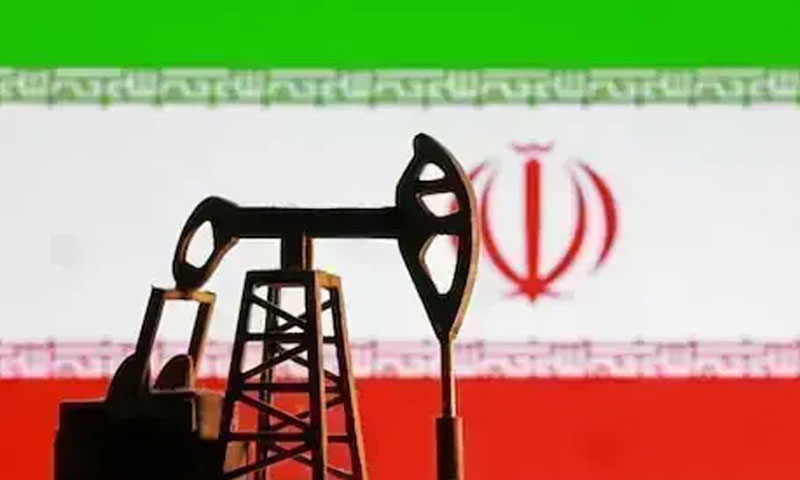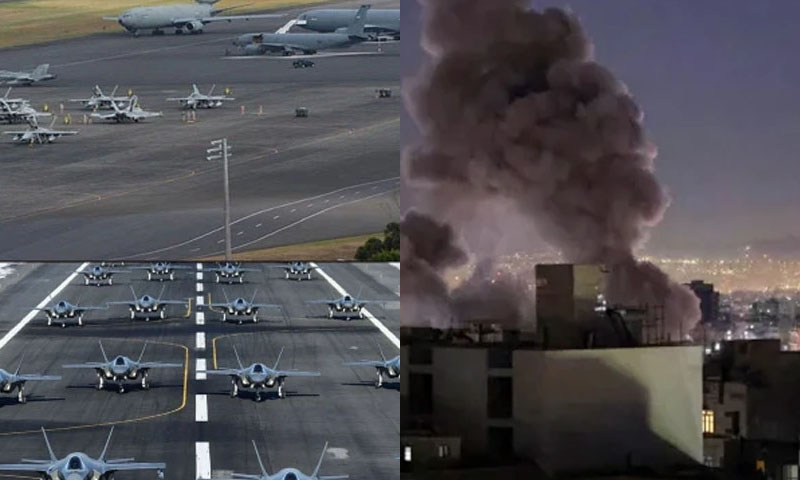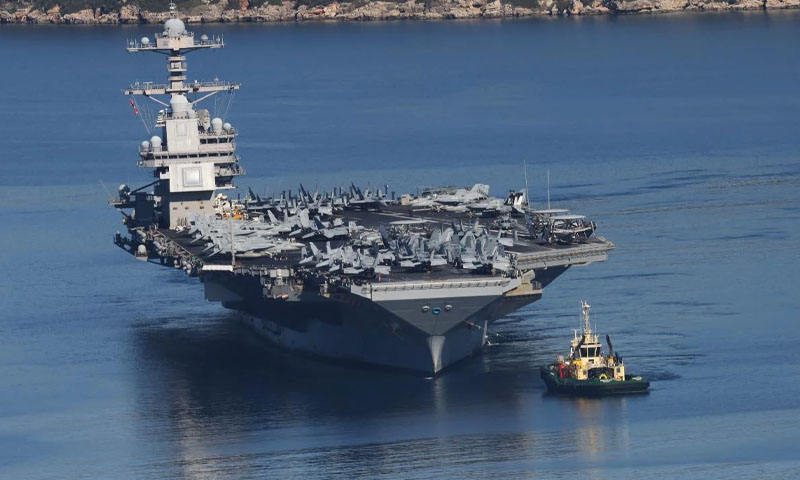- Web
- Mar 02, 2026
Drone attack on Syrian military academy claims over 100 lives
-

- Web Desk
- Oct 05, 2023

DEMASCUS: In a devastating drone attack on Thursday, a Syrian military academy located in government-held Homs witnessed the loss of more than 100 lives, including at least 14 civilians, as reported by a war monitoring group.
The Syrian Observatory for Human Rights, a UK-based organization with extensive on-ground sources in the conflict-ridden country, revised the previous casualty count, stating that “more than 100” individuals had perished, with roughly half of them being military graduates and 14 identified as civilians. Additionally, over 125 people sustained injuries.
Concurrently, in the northeastern Kurdish-held region of the war-torn country, Turkish airstrikes targeting military and infrastructure installations resulted in the deaths of at least nine individuals, according to Kurdish forces. These strikes came after Ankara had issued threats of retaliation following a bomb attack.
The central Syrian city of Homs bore the brunt of the attack, where what the army termed as “armed terrorist organizations” targeted a graduation ceremony for military academy officers. The official news agency SANA reported casualties stemming from this incident.
Meanwhile, the Syrian Observatory for Human Rights, a UK-based monitoring group with a vast network of on-ground sources, reported a casualty count of “more than 60,” encompassing military personnel and at least nine civilians, with dozens more injured. No group immediately claimed responsibility for the attack, which utilized explosive-laden drones, according to the military statement. The general command of the army and the armed forces strongly condemned the “cowardly… unprecedented” attack and pledged a full-force response.
Later on Thursday, in the opposition-held Idlib region, residents reported extensive and intense regime bombardment. The Idlib opposition stronghold in northwest Syria is governed by Hayat Tahrir al-Sham (HTS), an extremist group formerly affiliated with al-Qaeda, which has previously employed drones to target government-held areas.
Simultaneously, Turkish airstrikes in Hasaka province in northeastern Syria, under Kurdish control, led to the deaths of six members of the internal security agency, as reported by the Kurdish force’s media center. Additionally, a worker in the province lost his life, and two civilians were killed in a motorcycle strike, according to Farhad Shami, spokesperson for the Kurdish-led Syrian Democratic Forces (SDF), the de facto army of the Kurds. The Kurdish authorities’ statement also noted Turkey’s regular strikes on targets in the semi-autonomous Syrian Kurdish region.
Following a weekend attack in the Turkish capital, Ankara had warned of more intense cross-border air raids and subsequently launched strikes on positions held by the Kurdish group in northern Iraq, attributing the attack to Syria.
The US-backed SDF played a pivotal role in ousting ISIS fighters from their remaining Syrian territory in 2019. Turkey regards the Kurdish People’s Protection Units (YPG), who dominate the SDF, as an offshoot of the Kurdistan Workers’ Party (PKK), a designated terror group by Turkey and its Western allies.
In the wake of the attack in Ankara, which left two Turkish security officers injured and was claimed by the PKK, Ankara escalated its strikes on the Kurdish group’s positions in northern Iraq.
AFP correspondents in Syria’s northeast observed black smoke rising from oil sites near Qahtaniyeh, in close proximity to the Turkish border. The correspondents also reported strikes on two power stations in the area. Shami of the SDF indicated that the strikes targeted both military and civilian sites and noted an increase in overflights of Kurdish-held areas in northeast Syria.
US Central Command captures Islamic State official in Syria raid
Turkish Foreign Minister Hakan Fidan had issued warnings of reprisals against Kurdish fighters in northeastern Syria following the attack outside the interior ministry in Ankara, alleging that the attackers had “come from Syria and were trained there.” He stated that “all infrastructure, large facilities, and energy facilities belonging to (armed Kurdish groups) in Iraq and Syria are legitimate targets for our security forces.”
In the city of Qamishli in Hasaka province, vendors anxiously followed the escalating situation on their mobile phones and televisions, with one fabric merchant, Hassan al-Ahmad, expressing concern over Turkey’s actions, stating, “The situation is worsening every day. Turkey doesn’t let us breathe.”
SDF commander Mazloum Abdi refuted claims that the Ankara assailants had “passed through our region” and accused Turkey of seeking pretexts to legitimize its attacks and potentially launch a new military aggression. The Kurdish administration called on “the international community, the international coalition,” and Russia to take measures to deter Turkey from its attacks.
State Department spokesperson Vedant Patel expressed the United States’ concern regarding the military escalation in northern Syria. Notably, the United States, Russia, and Turkey all maintain troops in various areas of the conflict-ridden country.
Between 2016 and 2019, Turkey carried out three major operations against Kurdish forces in northern Syria. The conflict in Syria, which began in 2011 with a harsh government crackdown on anti-government protests, has claimed over half a million lives and evolved into a complex battlefield involving foreign armies, militias, and extremist groups.




